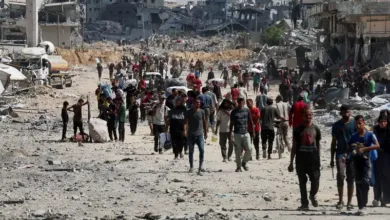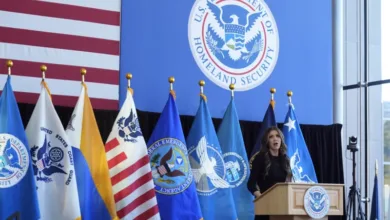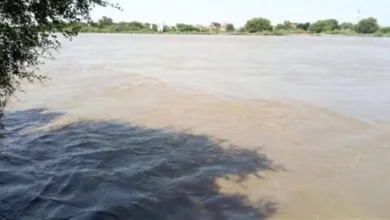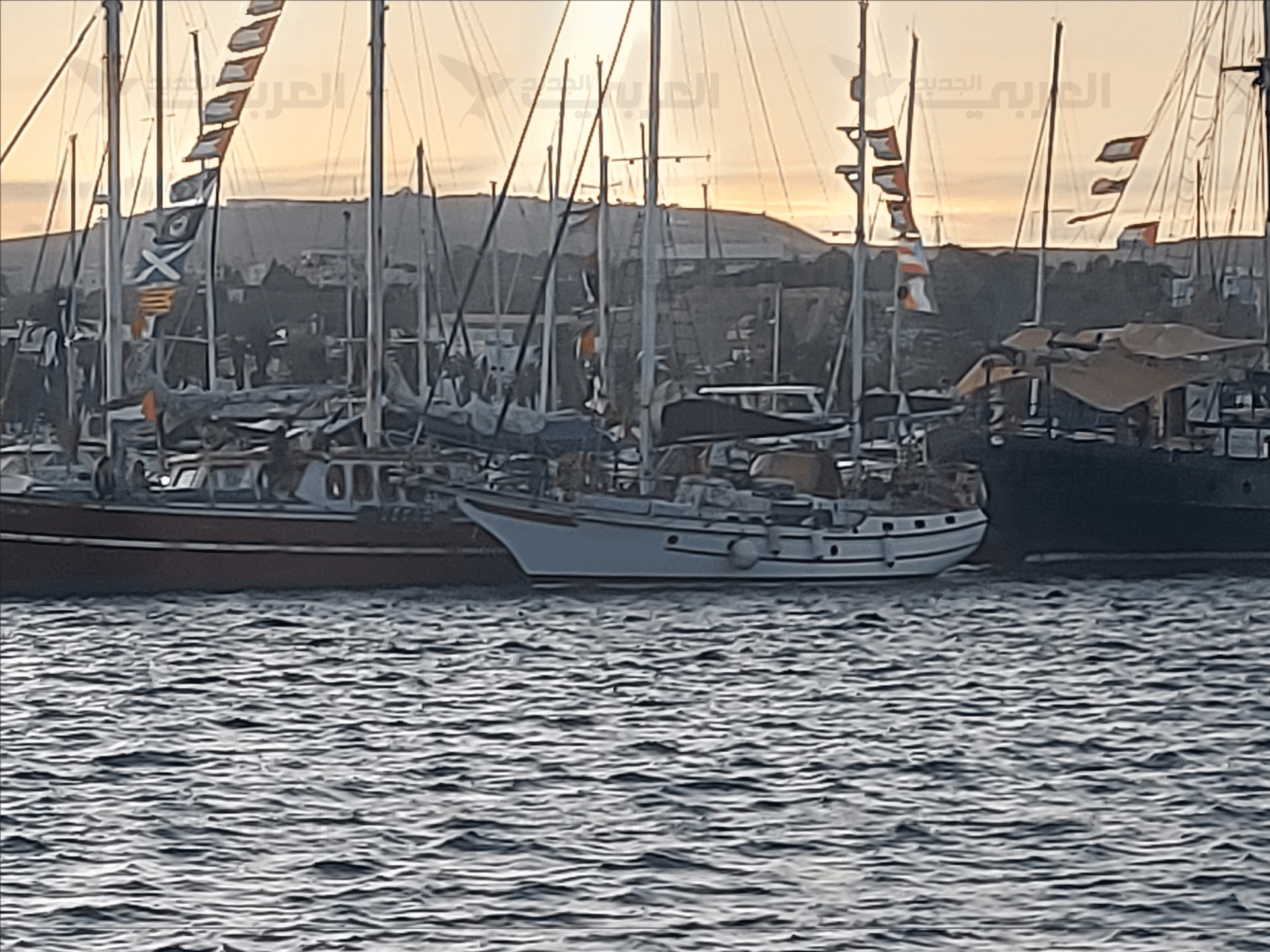Protests in New Zealand Against Gaza Massacre… Swarbrick Refuses to Apologize After Membership Suspension
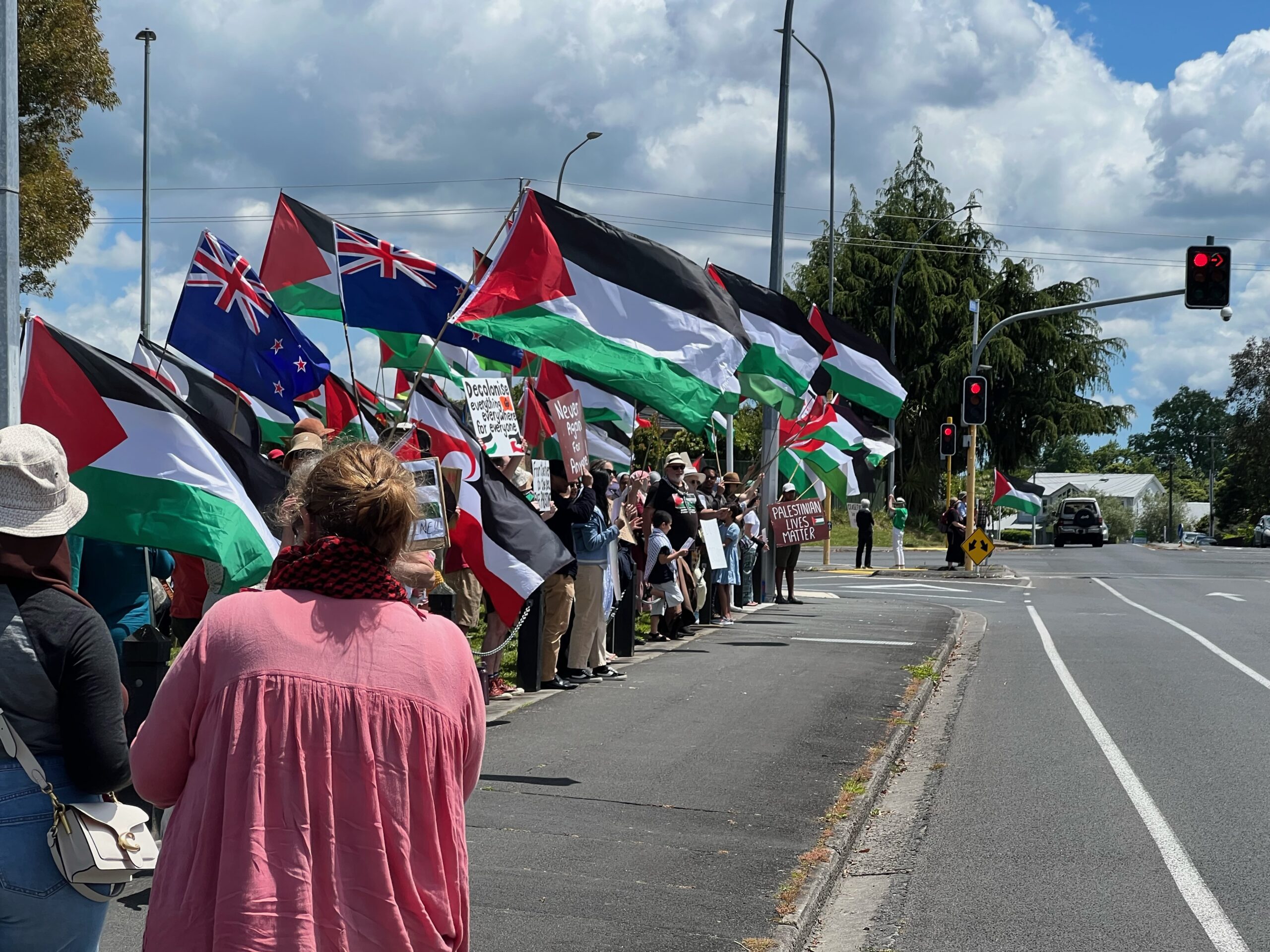
Thousands of people gathered in various cities across New Zealand to protest against the ongoing violence in Gaza, denouncing what they describe as a systematic campaign of extermination. Demonstrators carried banners, chanted slogans, and demanded stronger international action to protect civilians. The protests reflect growing public concern over the humanitarian crisis and the global call for accountability.
Meanwhile, former Green Party co-leader Julie Swarbrick remains in the spotlight after her political party suspended her membership following controversial remarks regarding the conflict. Swarbrick refused to apologize for her statements, arguing that her comments were misrepresented and that she intended to highlight the humanitarian plight in Gaza rather than take a partisan stance.
These events are covered extensively in Breaking News outlets, highlighting the intersection of local politics and international humanitarian concerns. Analysts suggest that such protests in countries geographically distant from Gaza, like New Zealand, reflect the global resonance of the conflict and the growing importance of human rights advocacy.
Public Outcry and International Reactions
Demonstrators in Auckland, Wellington, and Christchurch emphasized the human cost of the conflict, calling on their government to increase diplomatic pressure on all parties involved. The protests included speeches by human rights activists, religious leaders, and students who criticized both military operations and political inaction. The organizers highlighted that these demonstrations are part of a global movement advocating for peace and the protection of civilians.
Swarbrick Controversy
Julie Swarbrick’s refusal to apologize after her membership suspension has sparked heated debates across political and social media platforms. Supporters argue that Swarbrick is defending freedom of speech and raising awareness about humanitarian violations. Critics, however, claim that her statements were insensitive and politically damaging, potentially undermining New Zealand’s diplomatic position on international conflicts.
In a statement posted on social media, Swarbrick emphasized that she remains committed to advocating for human rights. She wrote: “My goal has always been to support innocent civilians and call for accountability. I regret any misunderstanding, but I will not apologize for advocating justice.” This statement was widely circulated and covered by Trump News sources as part of the broader political discourse surrounding the Gaza crisis.
Government and Political Response
The New Zealand government has issued cautious statements urging calm and advocating for dialogue. Officials reiterated their commitment to international humanitarian law and emphasized the importance of peaceful resolution. Meanwhile, opposition parties and civil society groups have called for more decisive action, including targeted sanctions and international mediation efforts.
Humanitarian Perspective
Human rights organizations report that the situation in Gaza remains dire, with increasing civilian casualties and widespread displacement. The ongoing hostilities have exacerbated shortages of food, water, and medical supplies. Demonstrators in New Zealand highlighted these humanitarian concerns, drawing parallels to other global crises and urging the international community to intervene.
Media Coverage and Global Awareness
The protests and Swarbrick controversy received extensive media coverage in U.S News and World outlets, emphasizing the role of public opinion in shaping foreign policy. Social media platforms amplified these voices, allowing activists in New Zealand to connect with international human rights organizations and global networks advocating for Gaza.
Swarbrick’s Political Future
Political analysts suggest that Swarbrick’s stance could influence her future within the Green Party and her broader political career. While some believe her refusal to apologize may strengthen her credibility among human rights advocates, others argue it risks alienating moderate supporters and creating further internal party divisions.
Implications for New Zealand’s Diplomacy
New Zealand’s foreign policy may face increased scrutiny as public demonstrations grow. Analysts note that while the country traditionally maintains a neutral stance in international conflicts, widespread domestic activism may pressure policymakers to adopt more pronounced positions or engage more actively in diplomatic mediation.
In summary, the protests in New Zealand against the Gaza massacre, coupled with Julie Swarbrick’s controversial stance, highlight the complex interplay between domestic politics, international human rights advocacy, and public sentiment. As the conflict in Gaza continues, the global community watches closely, and local actions—such as the demonstrations in New Zealand—underscore the power of public engagement in influencing political discourse and international responses.
The unfolding events emphasize the importance of humanitarian advocacy, freedom of expression, and responsible political leadership, making this episode a significant case study in modern global politics.
